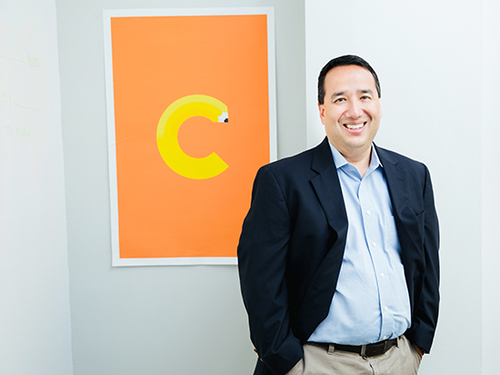Character Lab is developing effective character-building tools by uniting educators and researchers.

Donald Kamentz
Many parents and teachers wonder: Can schools help students develop a deeper sense of gratitude, generosity, or purpose? For the team at Character Lab, the more important question is how.
While some doubt that virtue can be taught, recent research has shown that character strengths like gratitude, purpose, and self-control can be bolstered under the right conditions. But our understanding of how to cultivate these strengths in a classroom setting has been surprisingly limited. This is in part due to a troublesome chasm separating scholars and practitioners: Educators rarely have access to relevant research, which is largely locked away in academic journals and often couched in unfamiliar, technical jargon.
That gap provided the inspiration for Character Lab, an organization that supports cutting-edge research and the translation of that research for use in classrooms. Through a $2.5 million grant from the John Templeton Foundation, Character Lab established two funding initiatives to better understand how to develop character in schools. The first one funded teacher-led pilot studies on character development, while the second solicited proposals for the development of evidence based interventions in schools from character researchers.
Two years after the start of the inaugural projects, the team has gained invaluable insight into the potential of educator-researcher collaborations, reports Donald Kamentz, executive director of Character Lab.
“It’s not just about bringing researchers and teachers together,” Kamentz says. “It’s also about understanding each other’s worlds.”
Infusing Science into the Art of Teaching
Kamentz, who worked in K–12 education for more than 20 years before joining Character Lab, is familiar with a teacher’s typical approach to creating and testing a new lesson plan: intuition and iteration.
This intuitive understanding of how students learn was the inspiration for the first initiative, funding proposals from teachers with front-line experience. Testing the effectiveness of those ideas, however, required empirical techniques that classroom teachers less commonly employ. Character Lab’s unique approach to bridging the researcher-practitioner divide allowed them to pair scholars and educators from the outset on projects of mutual interest. In 2015, Character Lab hosted an inaugural boot camp where both groups presented ideas, giving educators the opportunity to learn more about evidence-based character development practices, and researchers a chance to hear from educators about what they believe works in classrooms. For the next series of projects, the team is developing an online platform that Kamentz likens to Match.com, where researchers and educators can find one another and submit joint proposals.
Stepping Into the Classroom
 The plan for joint proposals also addresses a challenge faced in the second initiative with several of the researcher-led projects. While the proposals conformed to the rigorous standards of scientific research, few of the researchers had operated in a classroom setting. As a result, they were generally ill-prepared for the nuances of school-based research. There was simply no guidebook on how to carry out that research in the classroom. In response, Character Lab developed the first set of “standard operating procedures” for school-based research.
The plan for joint proposals also addresses a challenge faced in the second initiative with several of the researcher-led projects. While the proposals conformed to the rigorous standards of scientific research, few of the researchers had operated in a classroom setting. As a result, they were generally ill-prepared for the nuances of school-based research. There was simply no guidebook on how to carry out that research in the classroom. In response, Character Lab developed the first set of “standard operating procedures” for school-based research.
“To understand a school, you need to spend an entire day there — from the first bell to the last,” says Kamentz. “You need to know key administrators, and you need to become best friends with the front office. You need to really get to know those kids and the community.”
The initial projects added significantly to researchers’ and teachers’ understanding of character development and offered lessons on how to improve research of this sort moving forward. Kamentz points to a Character Lab-supported project on teenage defiance, featured in The New York Times, as an example of the work.
“All of the work that we’ve done helped us iterate new ways of engaging and bridging the researcher and educator communities,” Kamentz says. “We believe the best work ahead has to come from educators working side by side with academics.”